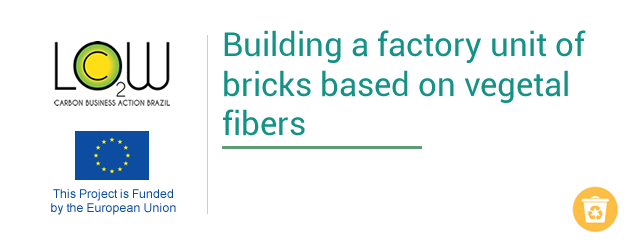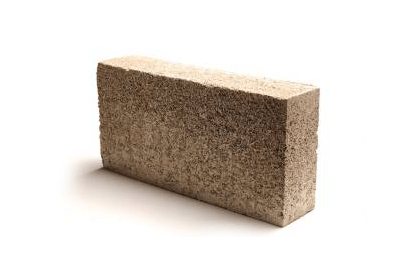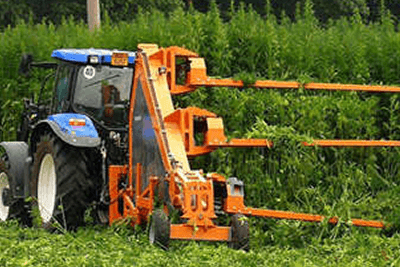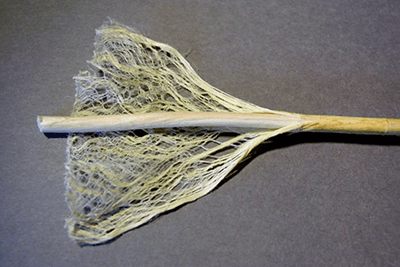


This project is implemented by the Romanian company Inergy and the Brazilian company Arquiar Engenharia (website not available) and has the objective to construct in the municipality of Acaraú, in the Ceará Northeastern Region of Brazil a factory unit of the bricks based on vegetal fibers.
This low carbon market is distinguished by having its endless cycle contributing effectively to the planet. After harvesting, fibre processing, brick making and selling, the product becomes even more profitable because carbon sequestration is an inexhaustible market in Asia. Generating economy, sustainability and employment with a low-cost product, adding innovation, technology and reuse is the ultimate scale of this raw material. Directed to specific audiences, such as engineers, architects, builders and civil construction in general. The estimated savings are over 25% in the exchange after 20 years, in addition to benefiting the low income communities in the generation of new jobs, using a natural resource with the extractives monitored by the production reusing what would be discarded as trash.




The daily production will be around 3,500 units, carried out manually and mechanically in a compact product that does not require burning of any type of fuel. The base brick of the vegetable fibers is the result of the mixing of mineral ingredients such as silicon, cement, coconut, and cashew fibers, where a compact brick composed of two holes joined by flexible glue.
The expected results are to distribute and sell first in the Northeast regions and latter in Brazil, the ceramic blocks based on vegetal fibers that are determined by the consumption billing registered in €464.339,15 for the ceramic blocks industry, 22,5% of which is due to consumption in the Northeast region, computed at € 9.226.932,67 for the conventional market, which differs from our sustainable market where the result of this production still hijacks around 12,5 kg per year of CO ², where the post-sale to the Carbon market in China means € 330,00 per ton, per year not issued.
The target audience are city halls, builders, contractors and design offices.

Unique innovation and sustainability in a single product: bricks made of vegetable fibres that will be used in engineering, architecture contributing directly with KYOTO PROTOCOL, for not using fossil fuels, with 250 kg of CO² not emitted by the production that is to say only with the planting and management of the matrix (coconut and cashew tree) and 99.750 kg of CO² not emitted per month for a result of 91.000 units / month.
Furthermore, CO2 compensation can also be transferred towards the final user, with recipes for production that involve CO2 capturing processes for curing. Even more, thermal & humidity insulation proprieties can significantly increase energy efficiency in buildings.